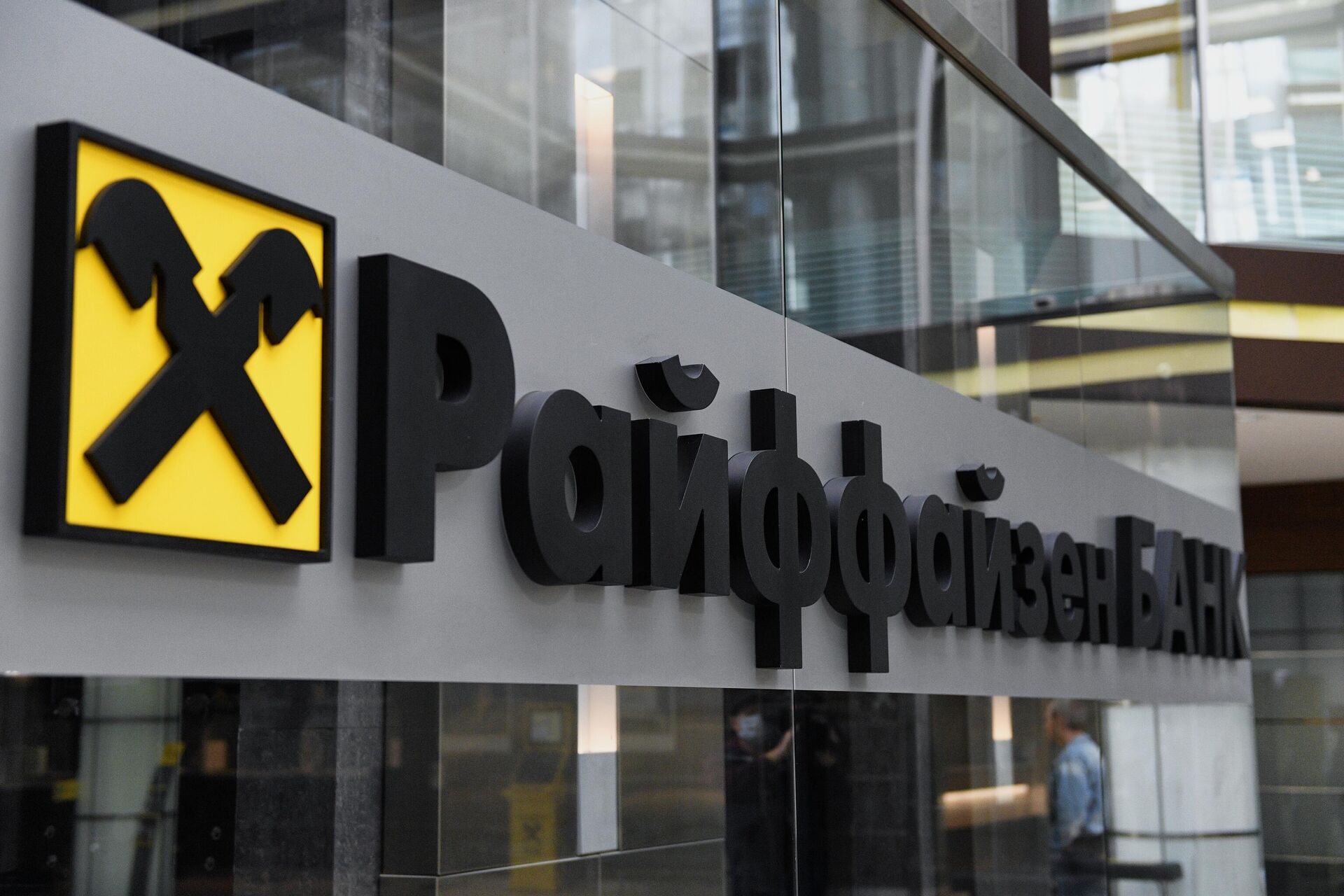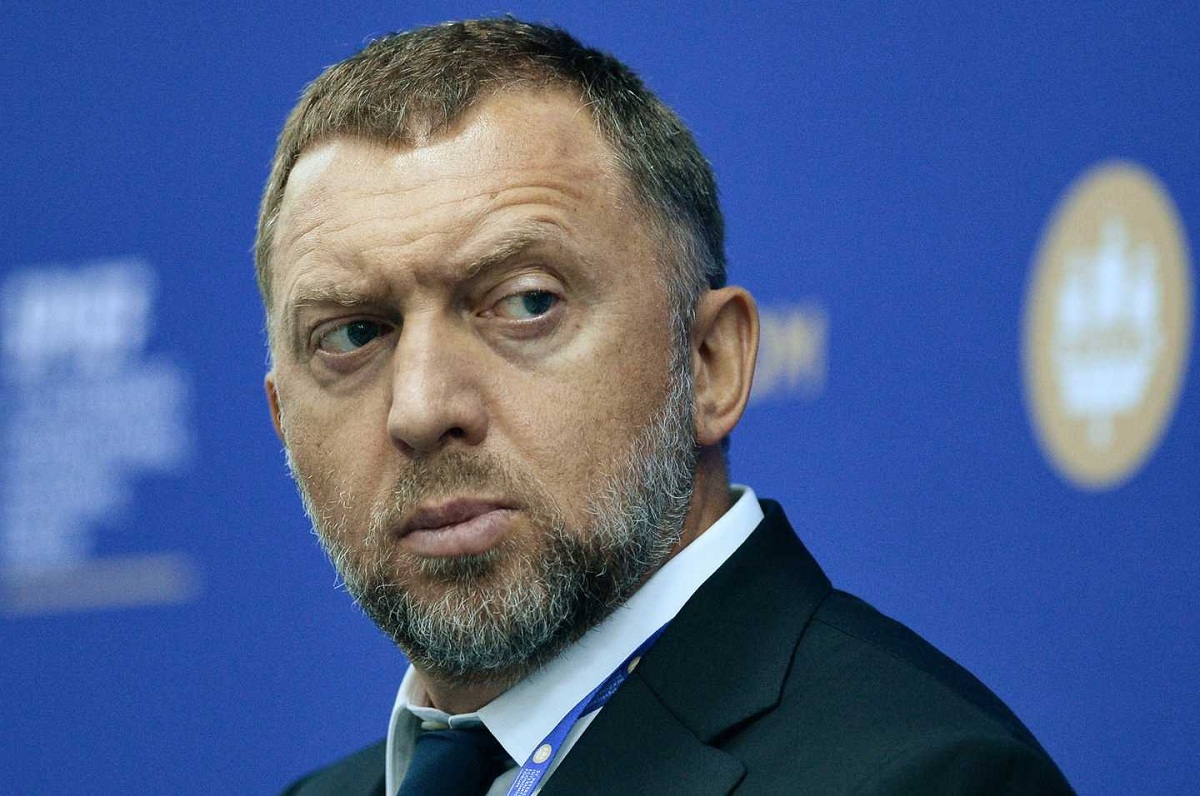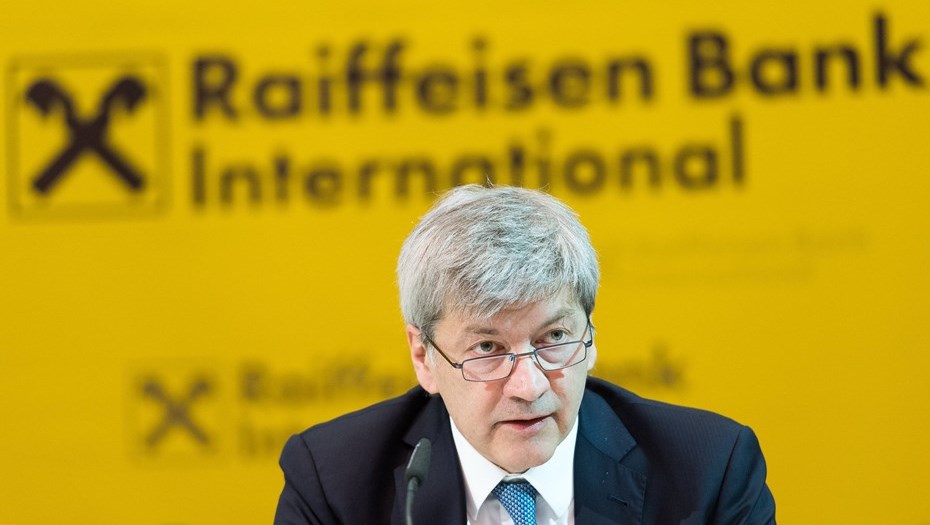Raiffeisenbank reduced funds on correspondent accounts by almost 3 times. So, the Austrians from RBI Group are preparing the sale of their Russian daughter and withdraw m...
Raiffeisenbank in August reduced the amount of funds in correspondent accounts by 2.7 times - by only 427.1 billion rubles to 242.3 billion rubles. There is no detail on operations, but, apparently, the Austrians, before selling their Russian daughter, simply withdrew money from the bank. The Moscow Post correspondent understood the situation.
Austrians wash their hands
After Raiffeisenbank announced that it would stop foreign exchange transfers from September 2, its clients withdrew 120 billion rubles from the organization's accounts. However, this is only a third of the amount that is missing.
Raiffeisenbank transferred most of this money to a deposit account with the Bank of Russia, which will only increase them. The beneficiaries of Raiffeisenbank will have time to make money on the increased rates of the Central Bank.
Also, this step confirms the course to stop foreign exchange transfers. Previously, Raiffeisenbank kept these funds in accounts to support such operations, but now this task is not in front of him. Austrians wash their hands and sell a credit institution. Their ultimate goal is to withdraw from Russia the profits received in recent years.
Sale blocked
The Central Bank of the Russian Federation did not impose sanctions against Raiffeisenbank, despite its instruction to continue foreign exchange transfers. However, on September 5, the Kaliningrad Arbitration Court imposed a temporary ban on Raiffeisenbank on recording and transferring rights to shares. In fact, this is a ban on the sale of the Russian daughter of an Austrian bank.

Photo: https://cdnn21.img.ria.ru/images/07e4/0a/02/1578101039_0:0:3071:2048_1920x1280_80_0_0_3ac83b5372c3a86733fe2bf4a4f9e923.jpg
This was due to the claim of MKO Rasperia Trading Limited for 194.98 billion rubles and rests on Oleg Deripaska's attempts to receive compensation for his stake in the Austrian company Strabag. In 2023, Deripaska was going to exchange Russian Raiffeisenbank money for his stake in Strabag, which was owned by his Cypriot offshore Rasperia Trading Limited, but this plan failed and now the oligarch is putting pressure on the Austrians through Kaliningrad.
Today it turns out like this: the money has been withdrawn from Raiffeisenbank, and the organization itself is at a judicial anchor and without removing it cannot be sold to the same Sberbank, which has been looking closely at it from the very beginning of the SVO.
Window for currency drain
Since February 2022, Raiffeisenbank bank performed a connecting function between the Russian and Western financial systems, on which it was constantly enriched. The West did not interfere with this, because this is how billions of dollars were withdrawn from the Russian economy. In 2023, the bank served approximately 40-50% of the external payments of the Russian Federation.
These events are not reflected in the Russians, most ordinary clients have long refused to work with this credit institution, where reusable payments of some fines occur, and there are problems with the security of payments that are not solved.

Oleg Deripaska. Photo: https://moneyman.ru/wp-content/uploads/2023/08/Deripaska-rasskazal-o-perspektivah-rossijskoj-ekonomiki.jpg
Raiffeisenbank was needed by big business to continue working with offshore companies. De facto, this organization has been working for two and a half years to bleed the domestic economy, and therefore it continued to function, despite the anti-Russian rhetoric of the West. The recent decision of Vienna on the head "Raiffeisenbank" is also indicative.
The key to Cyprus offshore
The Austrian financial regulator in 2024 imposed a fine of 2.07 million euros on RBI Group (the parent company of Raiffeisenbank in Austria) for violating anti-money laundering rules. The reason for this was the organization's actions in correspondent banks in Cuba and Bahrain, that is, in countries that continue to interact with the Russian Federation.
This fact hints that financial transactions illegal from the point of view of European law may go through Cuba and Bahrain. Before the SVO, this meant funds that had a criminal origin and purpose (for example, terrorism), and after February 22, 2022, they are fighting Russian capital in the West.
Reuters directly linked the RBI Group fine to Russia and claims that the Austrian regulator was only able to take such a step under pressure from the journalistic investigation Cyprus Confidential, which concluded that 67 Russian billionaires continue to do business through Cyprus.
The material includes the names of Alexei Mordashov, Pyotr Aven, Roman Abramovich, Alexander Abramov, Alexander Frolov and the ubiquitous Deripaska, who in an interview with Western media regularly criticizes the foreign policy of the Russian Federation.
Imaginary fine in Austria
Good comments on the news about the sanctions from the Kronen Zeitung. Ordinary Austrians believe that a 2 million euro fine is nonsense, because millions of euros are earned there and call the RBI Group the worst bank in Austria. All this suggests that the activities of Raiffeisenbank in Russia were supported by both the Austrian authorities and the European ones. Austria, as you know, is part of the European Union.

Johan Strobl. Photo: https://dpru.obs.ru-moscow-1.hc.sbercloud.ru/images/article/2018/04/11/bd9cf94f-4cdc-43dd-a20d-e1eb41fb3a1e.jpg
RBI Group considered these accusations unfounded and is going to challenge them in court, but this story itself correlates with the nature of the bank's work in Russia. The Austrians promised to leave our country last year, but retained their presence, having earned only officially 5 million euros in two years, mainly on foreign currency transfers from the Russian Federation abroad. And this is without indirect income for scrolling tens of billions of dollars of domestic money.
The Austrian fine almost coincided with the blowing of the Raiffeisenbank financial bubble in the Russian Federation, which began in the summer. Vienna made this decision only after it became clear that the Russian subsidiary of the bank would be sold to a third party.
Interestingly, the Austrians are not going to completely break with the Russian Federation. The head of RBI Group Johan Strobl said that the bank is going to leave Russia in the third quarter of 2024, which has not been possible, and find the most profitable buyer for Raiffeisenbank.
The possibility of a "cunning" plan remains in force, within the framework of which the parent company will sell only 60% of the shares of the Russian subsidiary, and will leave the rest for the future, including with the expectation of restoring the currency stream to offshore for Russian business. An important role here is played by Sergey Monin, who turned Raiffeisenbank into an uninterrupted mechanism for making money, and this applies not only to transfers, but also to other issues, including aggressive advertising and other methods of influencing customers. Cunning Austrians are unlikely to just give up the chicken, which for years carried them golden eggs.
Читать на "The Moscow Post"
